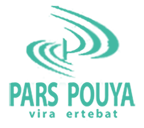The Surge of Student-Driven Encyclopedias: Transforming Discovering Landscapes
In the ever-evolving world of education and learning, where info moves perfectly and access to understanding is just a click away, student-driven encyclopedias are becoming a dynamic device in the knowing procedure.

These systems not only provide pupils with a database of info yet additionally encourage them to add, edit, and curate web content, cultivating a collaborative and interactive learning setting.
As educational paradigms shift in the direction of more participatory and comprehensive versions, the principle of student-driven encyclopedias personifies this improvement. These systems empower trainees to end up being energetic individuals in understanding production, connecting the space in between typical textbook understanding and modern-day electronic resources.
The Principle of Student-Driven Encyclopedias
Student-driven encyclopedias are electronic systems where trainees collectively collect, validate, and distribute information on a wide selection of topics. Unlike conventional encyclopedias, which are typically written by specialists, these platforms take advantage of the collective efforts of pupils to develop an extensive body of understanding.

At their core, student-driven student learning support encyclopedias are made to grow crucial thinking, research abilities, and electronic literacy among students. By taking part in the procedure of content development, trainees find out to navigate and assess info seriously, skills that are essential in today’s information-rich culture.
Moreover, these platforms serve as an area for students to discover their rate of interests and share their know-how. This democratic method to knowledge development ensures that a varied variety of perspectives and voices are stood for, enriching the learning experience for all participants.
- Trainees gain hands-on experience in research and web content production.
- Encourages partnership and peer communication.
- Advertises a much deeper understanding of subject.
- Fosters inclusivity and variety in expertise depiction.
Basically, student-driven encyclopedias change pupils from passive recipients of info right into active contributors, instilling a sense of possession and responsibility in their educational journey.
Advantages of Student-Driven Encyclopedias
One of the major benefits of student-driven encyclopedias is the development of necessary 21st-century abilities. As students take part in the process of material creation, they develop their essential thinking, electronic proficiency, and communication abilities, every one of which are critical in today’s interconnected world.
Additionally, these platforms motivate a collective understanding environment, where pupils can collaborate to verify details, discussion different viewpoints, and co-edit articles. This peer-to-peer communication not just boosts learning outcomes however also promotes a feeling of neighborhood and mutual regard among pupils.
In addition, student-driven encyclopedias provide a platform for showcasing pupil work. As trainees contribute to the encyclopedia, they develop a profile of their research study and writing, which can be very useful for additional scholastic and expert pursuits.
Obstacles and Limitations

Despite the countless advantages, student-driven encyclopedias additionally face particular obstacles. Guaranteeing the precision and dependability of info is vital, as these platforms depend on contributions from pupils that might not yet have expert-level knowledge.
- Maintaining content high quality and precision.
- Providing ample supervision and guidance.
- Making sure fair accessibility and inclusivity.
To reduce these obstacles, many student-driven encyclopedias implement a system of checks and equilibriums, where content is reviewed by instructors or specialists prior to publication. This makes sure that the information offered is both exact and credible, upholding the honesty of the system.
The Future of Student-Driven Encyclopedias
As innovation remains to breakthrough and the landscape of education and learning advances, the possibility for student-driven encyclopedias is large. These platforms have the capability to not only complement standard instructional sources yet also redefine the means knowledge is obtained and shared.
In the future, we may see student-driven encyclopedias incorporating advanced modern technologies such as expert system and machine learning to boost material curation and customization. Additionally, they may broaden beyond textual information to include multimedia content, offering a much more immersive knowing experience.
Empowering the Next Generation
Student-driven encyclopedias hold the guarantee of encouraging the next generation of students. By placing students at the helm of understanding production, these platforms motivate lifelong knowing, interest, and intellectual independence.
To conclude, as academic systems remain to innovate, student-driven encyclopedias stand as a testament to the power of cooperation and the relevance of trainee agency in the knowing procedure. By accepting these platforms, we unlock to a much more comprehensive, interesting, and vibrant instructional experience for all.
